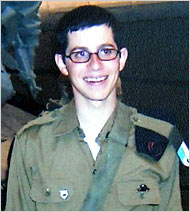After speaking to you over lunch on Shabbat I thought of things I wanted to add (isn’t that always the way.) I am not sure when you will have time to read this, but I hope that basic training goes o.k. and is not too depressing – knowing you, you’ll probably love it! And above all else, I really hope your army experience is everything you want it to be.
On Friday I saw a film called Ulpan life, describing the experiences of 5 different olim chadashim in Israel. One, a Chinese girl called Dong Dong met her Israeli husband on a tiyul and returned with him to set up life in Israel. Dong Dong dreams about making a documentary about Chinese workers in Israel ‘but not about their hardships, something that Israelis always discuss…about their love for this country.’
Yet as she meets the workers and hears their stories she realizes that the awful conditions they experience demand something else – that she films their lives and creates visual testimony to their hardships. And in a passage I found particularly moving she says, ‘Maybe after being here (in Israel) for a few years here I will become numb to all of this; but I don’t want to become numb, I want to do something about it…’
Last week we read about Pinchas who is given a ‘Brit Shalom’ by God after zealously slaying two people engaged in a forbidden act. The Torah’s view on zealotry is ambivalent at best – the line between killing to protect God’s honour and murdering to protect our own is thin according to the commentaries. And why is this man who kills given a Brit Shalom? Because, according to the Netziv, after what Pinchas did, he needed it - the inherent nature of killing people, even if divinely sanctioned, could have left him with feelings of hate.
And I think is being suggested is that killing may sometimes be acceptable, but it leaves its mark on the killer. Because there are things that even if they are right and need to be done, they still have negative consequences.
And the line between killing to defend values we cherish and murder is sometimes blurry at best.
Whilst on a personal political level, I look forward to the day when Israel will be able to leave most of the ‘territories’ I also believe that the army is doing an important, even crucial job. And Kol HaKavod to Tzahal! The job your unit does is essential to us mere civilians being able to sleep safe at night or get on a bus to work safely.
Yet the work they do is also sometimes ugly, sensitive; and over time can take its emotional toll.
It may be necessary to do. But, long bouts of military activity in civilian population centres effects people, wears them down, makes them indifferent to suffering. It can make us numb.
So above all, stay safe, and look after yourself (and don’t listen to those Israelis that will tell you
 you’re crazy.) And in addition, try and battle the feelings of hatred or indifference that the work you do may naturally lead to. And do your best not to be numb to other people’s suffering (even if they are on the other side to us.)
you’re crazy.) And in addition, try and battle the feelings of hatred or indifference that the work you do may naturally lead to. And do your best not to be numb to other people’s suffering (even if they are on the other side to us.)Because our emotions and ability for compassion make us who we are. And none of us made Aliya to ultimately become indifferent to what happens here.
May God give you a Brit Shalom.









